In today’s interview, we are fortunate to have Mr. Rahul Bansal, the founder of rtCamp, a distinguished WordPress VIP agency hailing from Pune, India. Notably, rtCamp stands as the sole agency of its kind in Asia.
In this interview, Rahul generously shares his personal experiences with the company, detailing the challenges he has faced and the methods he has employed to overcome them. He also imparts valuable insights on the topic of AI’s uniqueness, effective monetization strategies, and engaging clients.
We chose to interview Mr. Bansal due to his unmatched expertise in the realm of WordPress VIP agencies in Asia. He stands as the only Indian professional to achieve this prestigious VIP status in the WordPress field. Given his extensive involvement in the online world, his knowledge holds immense value, making it truly worthwhile to learn from someone immersed in this particular domain.
Without any further delay, let’s dive into the interview.
About Guest
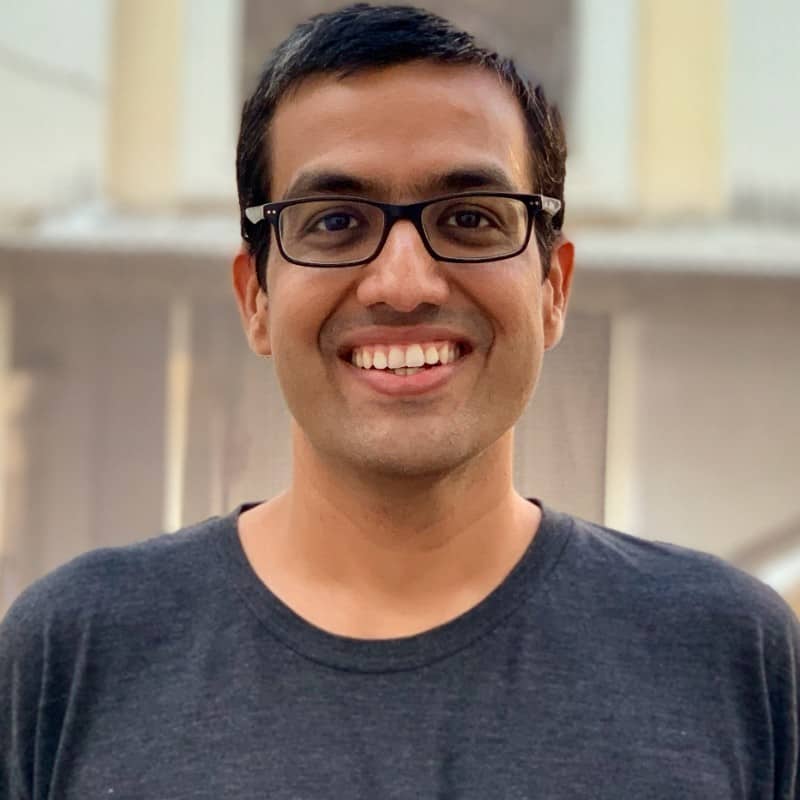
Guest Name: Rahul Bansal
What They Do: Rahul Bansal is the founder of rtCamps.
Company: rtCamps
Known For: Rahul Bansal is known for creating first WordPress VIP agency from India. His knowledge holds immense value and he talks about WordPress & eCommerce.
Social Media:
Video Interview with Rahul Bansal
Audio Podcast With Rahul Bansal
Full Interview with Rahul Bansal
Rahul can you please give us a brief intro about who you are and what you do?
Rahul Bansal: Hi, first, thanks Kripesh for having me here. I’m the founder of rtCamp. We started rtCamp about 13 years ago, but my personal relationship with WordPress goes back 16 years. I started using WordPress as a blogger, simply sharing my personal stuff online. From there, we’ve evolved into a blogging network design agency, a WordPress agency, and now an enterprise WordPress agency.
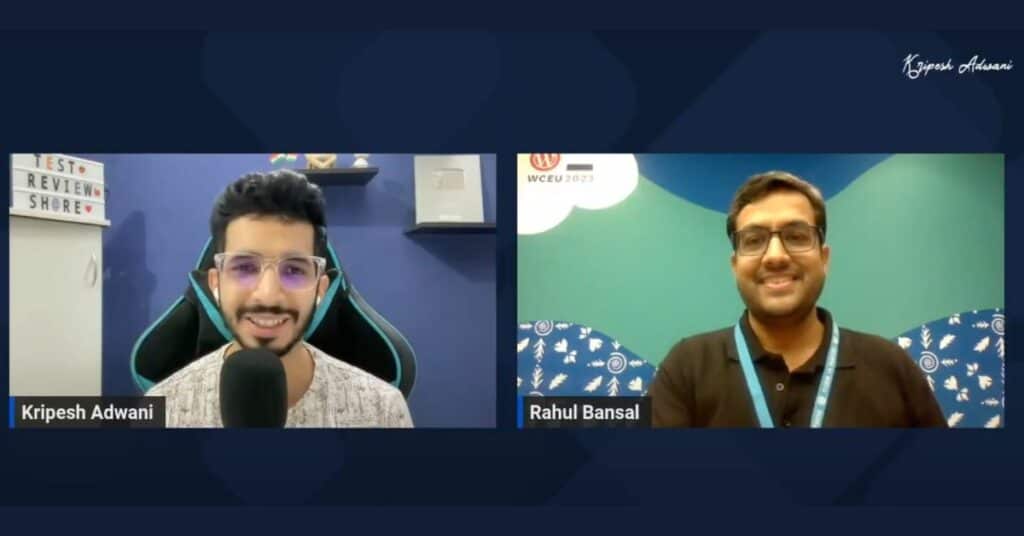
So you are the first WordPress VIP agency from Asia When did you achieve that figure?
Rahul Bansal: Yes, that’s correct. We became a VIP partner in July 2016 after going through a two-year waiting process. Starting in 2014, we initiated discussions, and it took two years because VIP has a high aspirational value for partnership. They conduct extensive due diligence before partnering with agencies.
What was the turning point for your business? You’ve been in operation for a long time now, right?
Rahul Bansal: Yes, we’ve been in operation for a while, and like all enterprises, we have experienced many ups and downs. We define certain moments as turning points or milestones. For us, one such remarkable moment was in 2016. Until that point, we were struggling and unsure if we would survive another year. However, since 2016, we’ve been fortunate to thrive through the pandemic and recession. Our business has been on a steady growth trajectory.
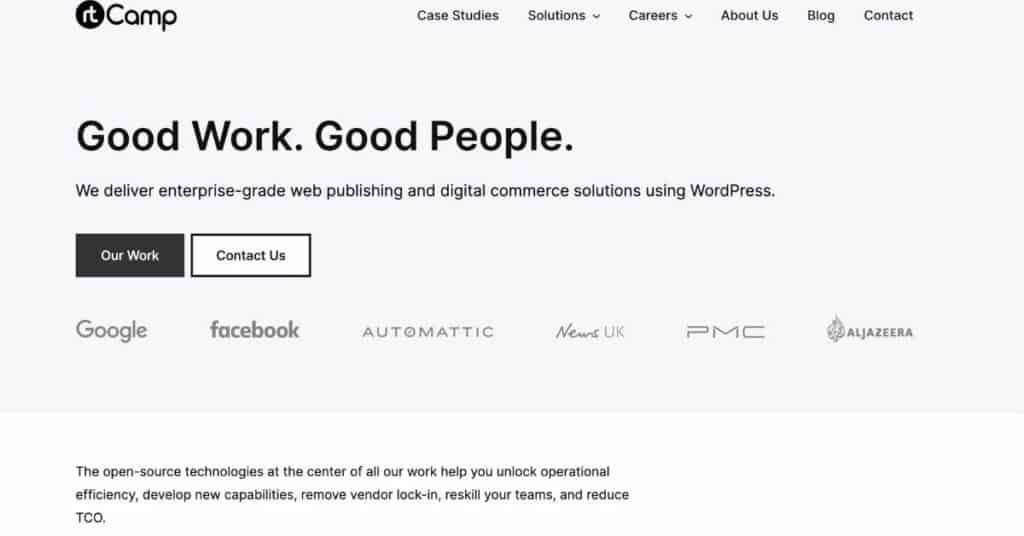
What were the main challenges you faced during that journey before becoming a VIP agency?
Rahul Bansal: Before becoming a VIP agency, we faced certain stereotypes that were prevalent in the industry. For example, when people thought of manufacturing, they stereotypically associated it with low-quality products from China. Similarly, India had a stereotype of being a destination for cheap labor and low-quality IT services.
These stereotypes made it difficult to sell our services. Prior to becoming a VIP agency, we lacked external recognition. Despite doing remarkable engineering work from day one, including projects like Manage WP, which was later acquired by GoDaddy, we struggled to find clients who trusted our engineering quality. It was challenging to prove ourselves and showcase our capabilities.
Can you tell us more about some of the biggest projects that rtCamp has worked on?
Rahul Bansal: As an enterprise, our business is divided into different verticals. In publishing, we have had the privilege of working with esteemed clients like Al Jazeera, Penske Media, and Indian Express, which is the second most read newspaper in India.
We have also collaborated with News Corp, working with their site thesun.co.uk. Additionally, we have partnered with tech giants like Google and Facebook. One notable project with Google involved working on web storage and their upcoming initiative around disabling third-party cookies in Chrome. It’s worth mentioning that all the work we do is open source.
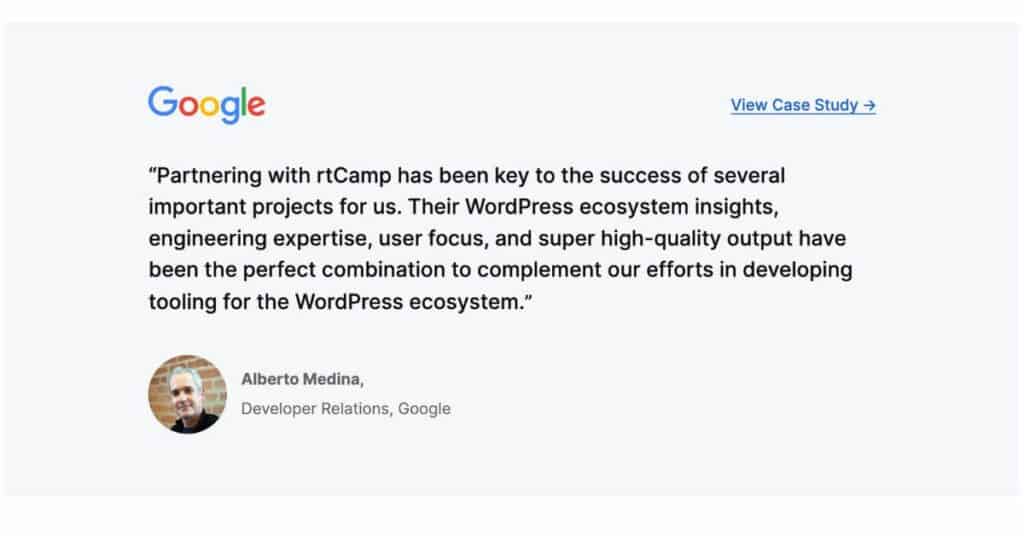
How many employees does rtCamp currently have? Do all of them operate from your office, or are they distributed globally?
Rahul Bansal: Currently, we have around 120 employees spread across the globe. We follow a distributed work model. While we do have a physical office, we consider it more as a co-working space rather than a mandatory workplace. The majority of our team members work remotely and we’ve been following this model since 2014. Only a few specific roles require on-site presence, such as operational tasks related to the office.
With the ever-evolving nature of the industry and the need to constantly learn and adapt, how do you manage your time effectively as the founder of a growing company?
Rahul Bansal: I always say that I work on the company rather than in the company. This means that I focus on the future and strategic aspects of rtCamp rather than getting involved in day-to-day operational tasks.
I have a strong and dedicated team, including two partners and other core team members, who have been with rtCamp for over a decade. They efficiently handle most of the operational work, such as sales and delivery, allowing me a lot of freedom to work on various initiatives.
This free time has given me the opportunity to volunteer for events like WordCamp Asia, the first flagship event of its kind in Asia. It has also allowed me to take personal breaks, such as a 10-day Vipassana meditation retreat, where I disconnected from the internet and phone calls. During that time, my team performed exceptionally well, showcasing the strength and capability of our organization.

How do you personally manage your own work-life balance, and do you have any tips for others?
Rahul Bansal: Managing work-life balance is a continuous effort. One approach I follow is optimizing my social media usage. I’m mindful of the hashtags I follow and the accounts I engage with, creating a passive learning environment. I stay updated with relevant content and insights without getting overwhelmed.
Additionally, I prioritize my tasks and eliminate unnecessary ones. Time optimization is a myth. Instead, it’s about prioritizing and focusing on the most impactful activities. It’s important to set boundaries and have open communication with your team and family. By maintaining a strong team and delegating responsibilities, you can create the space and time needed for a fulfilling personal life.
“Time optimization is a myth. Instead, it’s about prioritizing and focusing on the most impactful activities.”
Rahul Bansal
How do you build and nurture a strong team?
Rahul Bansal: Building a strong team requires prioritization and creating a hierarchy within the organization. At rtCamp, one of our internal mottos is “Good Work, Good People.” We prioritize creating an environment where people are motivated to do their best work. Whether it’s organizing a WordCamp flagship event or writing code, everyone strives to deliver their best.
No one starts a project or joins a team with the intention of doing a bad job. We all have the inherent desire to excel. By fostering a culture that values good work and good people, we attract individuals who align with our vision. Nurturing this environment and providing opportunities for growth and learning helps us build a strong and dedicated team.

Can you elaborate on the importance of integrity and hiring good people and how these principles contribute to building a strong team?
Rahul Bansal: When it comes to building a strong team, it’s crucial to recognize that nobody starts a project or takes on a task with the intention of delivering subpar work. People always strive to do their best. However, things can go wrong, and experiences may not always be optimal. The difference between good people and not-so-good people lies in their ability to take ownership of their mistakes.
At rtCamp, we emphasize integrity and owning up to any shortcomings. We don’t wait for someone to complain about an issue or a subpar experience. Instead, we proactively acknowledge and address any mistakes we may have made. Integrity is something that cannot be taught. It is an inherent quality that we look for when hiring new team members.
During our hiring process, we prioritize evaluating candidates based on whether they exhibit traits of honesty and sincerity. We believe in hiring good people first and foremost. We don’t micromanage or use time trackers because we trust our team members. Trust building happens when there is confidence in their honesty and commitment.
“Integrity is something that cannot be taught. It is an inherent quality that we look for when hiring new team members.”
Rahul Bansal
What advice would you give to someone looking to start their own agency in the current landscape?
Rahul Bansal: To establish a successful agency, it is crucial to have a strong foundation and demonstrate your expertise in a practical manner. Rather than making exaggerated claims, the key lies in showcasing your skills through tangible contributions. In today’s interconnected world, which heavily relies on open-source platforms, there are numerous opportunities to gain recognition.
I encourage individuals to actively participate in the open-source community. By making valuable contributions, such as submitting patches to projects like WordPress, you can effectively demonstrate your expertise and build trust with potential clients. This approach highlights that you are not just another agency, but a team of dedicated professionals who can be relied upon.
Furthermore, it is vital to study and learn from established players in your field. Gain inspiration from their work, understand the challenges they face, and build upon their successes. Specialization is key, whether it involves delivering high-quality services or providing more affordable solutions. Stay informed about industry trends, such as AI, and explore ways to incorporate them into your offerings.
Focus on a few key areas where you can truly excel. For instance, if AI is a prominent trend, avoid simply claiming to offer generic AI services. Instead, develop a specialized solution within the AI domain that sets you apart from others. This strategic approach will help establish your agency’s unique value proposition.
“The key lies in showcasing your skills through tangible contributions.”
Rahul Bansal

Rahul, you mentioned the importance of finding something unique in the AI space. Can you elaborate on this and how it relates to your approach at rtCamp?
Rahul Bansal: Absolutely. In the AI landscape, if everyone is using the same API or following similar solutions, the outcomes tend to be very similar. To stand out, it’s essential to think beyond the conventional applications of AI. Consider areas such as UX, onboarding, deeper integration, or even exploring the potential of OpenAI’s fake models. The idea is to find something unique and valuable that sets you apart from the rest.
When entering a new system or industry, it’s crucial to have a long-term vision. Don’t expect immediate recognition or success. Instead, have a clarity of purpose and a two to three-year horizon in mind. This mindset allows you to patiently build your reputation and demonstrate your commitment to delivering value.
How do you primarily monetize your services? Are there any other unique approaches to monetization that you employ?
Rahul Bansal: At rtCamp, our primary revenue stream comes from our services as an agency. Over 99% of our revenue is generated through our service offerings. We have one product, which currently represents a minimal portion of our overall revenue and does not show up significantly in our financials.
Could you share any insights on your most profitable months or the largest project you’ve undertaken in terms of revenue?
Rahul Bansal: Due to the nature of our enterprise projects, it’s challenging to break down revenue on a monthly basis. Typically, our engagements span from six months to two years, making it difficult to attribute revenue to specific months. However, we have had projects with annual revenue reaching up to a million dollars.
These substantial projects serve as significant milestones and guide our focus towards larger accounts. Our internal processes and cultural alignment revolve around serving these key clients that contribute a substantial portion of our revenue.
With that in mind, how many clients do you currently have and what’s your percentage growth?
Rahul Bansal: We have around 10 to 15 clients at any given time. However, not all clients are active simultaneously. Projects go through different phases, and clients may require our services intermittently.
For example, when a large corporation transitions from a proprietary enterprise solution to WordPress, there may be a surge of activity, such as extensive data migration and redevelopment. During such phases, we allocate a team of engineers to ensure successful project completion.
Our focus is on building long-term relationships with these key clients who contribute significantly to our overall revenue. Talking about growth percentage, our revenue has grown by 50% for the last 5 years. But in the current economy where budgets are shrinking and companies are laying off people, you have to be flexible as a business.
“Projects go through different phases, and clients may require our services intermittently.”
Rahul Bansal

Rahul, since you’re running a company with multi-million dollars in revenue, how much money is personally enough for you?
Rahul Bansal: The irony is that until 2016, all I wanted to do was visit a restaurant and order without looking at the price! In those times, I was always looking out for the cheapest dish on the menu. I always had to first calculate the bill I’d have to pay and then order food accordingly.
For 3-4 years, I didn’t buy any clothes. So my friends always used to gift me shirts. But thanks to Automattic VIP, my goal was realized a long time ago. It gave me so much that now I can eat anything in any restaurant without glancing a the price.
With regards to money, I only need one assurance that my bills will get paid. We are a company of engineers. So we love to code more than we love buying things. Currently, we’ve also declared there won’t be any lay-offs in our company. That’s what I love about money. It gives you confidence to stare into the eyes of the pandemic and the recession that can’t hurt you!
On the topic of money, what are some common misconceptions you’ve encountered?
Rahul Bansal: In this industry, especially in the online agency space, there’s a misconception that agencies will automatically lead to making millions. However, the reality is often the opposite. It takes a lot of hard work to get to your first million, especially if you’re starting without any established credentials.
Another misconception is that money can solve all your problems. For instance, people wonder why we don’t hire more employees despite having the resources. But finding the right talent who aligns with our values and is driven by passion is not something you can simply buy. It’s not about raising salaries and enticing people solely with monetary perks. It’s essential to attract individuals who have a genuine passion for what they do.
“It’s not about raising salaries and enticing people solely with monetary perks. It’s essential to attract individuals who have a genuine passion for what they do.”
Rahul Bansal
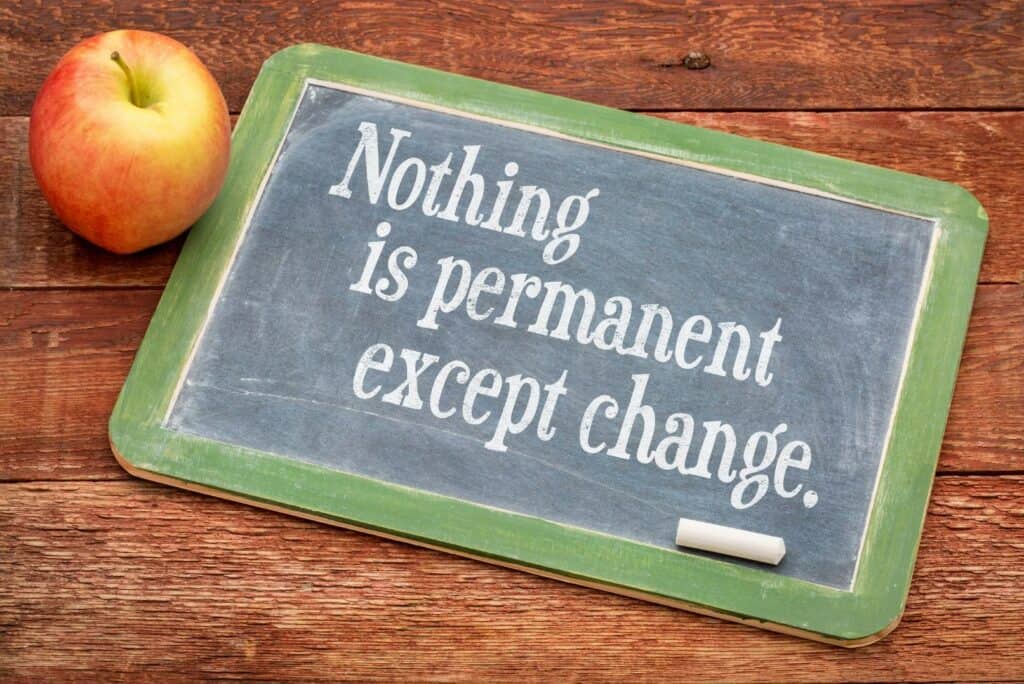
Do you have a life philosophy that guides you personally and in your business?
Rahul Bansal: My life philosophy centers around the belief that nothing is permanent. This mindset has been immensely helpful in our business. When setbacks arise, we take them in stride and approach them with the right mindset. Understanding that change is inevitable allows us to adapt and persevere through challenges.
Let’s talk about your experience at WordCamp Europe. How has your experience been at this event and other WordCamps you’ve attended?
Rahul Bansal: WordCamp Europe is a well-organized event, and having recently been part of the organizing team for WordCamp Asia, I truly appreciate the tremendous effort that goes into organizing flagship events like these. The team here has done an incredible job.
As for the best WordCamp I’ve attended, that’s a difficult question. It’s like asking a parent to choose their favorite child! Each WordCamp and the entire WordPress community has something unique to offer. They teach you and provide valuable insights. The reason I keep attending these events is that I always leave with something new and rewarding.
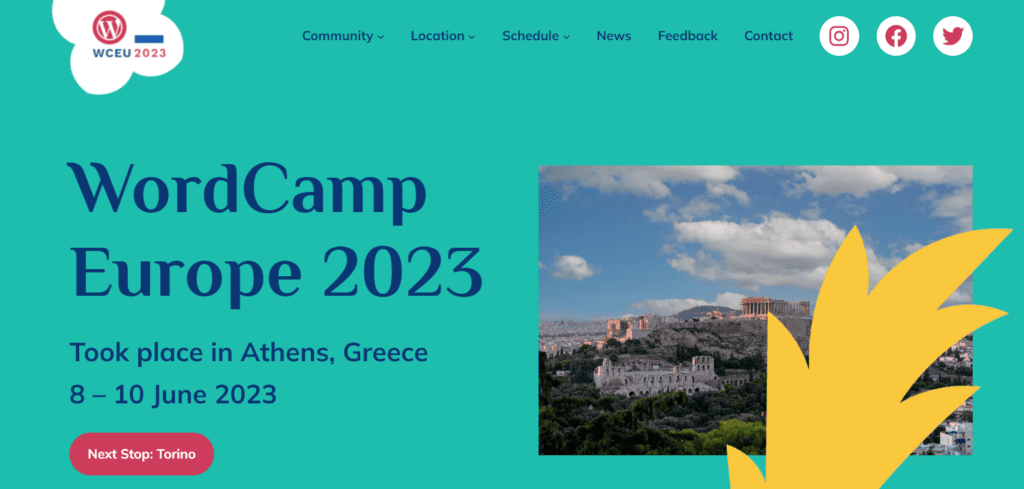
What is the best part about WordCamps that you love?
Rahul Bansal: The best part about WordCamps is subjective, but for me, it’s all about networking. As a highly remote company with a remote work culture, I value the opportunity to meet people in person. WordCamps provide a platform where you can interact with individuals who are contributing to the WordPress community.
Whether it’s a local WordCamp or a larger event, the chance to network and engage in face-to-face conversations is incredibly valuable. It allows for meaningful connections and enhances collaboration within the community.
“WordCamps provide a platform where you can interact with individuals who are contributing to the WordPress community.”
Rahul Bansal
If you could give advice to your younger self, what would it be?
Rahul Bansal: If I had the opportunity to advise my younger self, I would emphasize the importance of taking making money seriously. Often, engineers tend to overlook the significance of earning money and associate it with negative connotations. However, by not focusing on making money, you limit your potential to contribute back to open-source projects.
So, my advice would be to take making money seriously, and consider how you want to spend your money. But understand that making money is a crucial aspect of sustaining and supporting your contributions.
Conclusion
Thank you, Rahul, for sharing your insights on misconceptions about money, your life philosophy, and your experiences at WordCamps. We appreciate your time and wish you continued success in your business and future WordCamp endeavors.
What are your views on the interview? Let us know in the comment section below.
